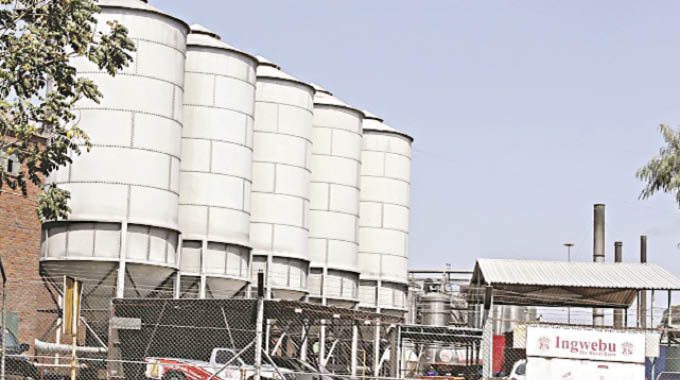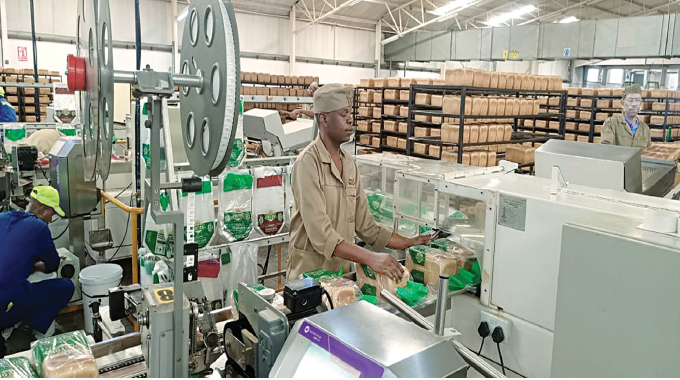‘Workers, employers ‘connive’ to evade pension contributions’

Prosper Ndlovu, Business Editor
THE National Social Security Authority (Nssa) has accused workers and employers of “conniving” to avoid pension contributions through non-review of pensionable income in favour of cushion allowances.
This has an effect of weakening the pensions contribution base, which will affect workers’ benefits upon retirement, said Ms Agnes Masiiwa, Nssa acting director collections, contributions and compliance.
The authority operates the Accident Prevention and Workers Compensation Scheme as well as the Pension and Other Benefits Scheme. It advises the Government on all matters relating to social security.
Effective June 1, 2020 workers and employers are contributing a combined nine percent of their earnings to Nssa up from seven percent. This follows the gazetting of Statutory instrument (SI) 108 and 109 in May, which reviewed Nssa contribution rates and maximum pensionable salary. Under this framework the maximum pensionable salary has been reviewed upwards from $700 to $5 000.
“The biggest challenge I would like to mention is the connivance between employees and employers in the evasion of payment of contributions to Nssa.
“We have noticed an increased incidence of non-review of the pensionable income in a way to evade payment of a higher pension contribution,” said Ms Masiiwa.
“During this time it’s only allowances that are being reviewed and the basic salary, which is the pensionable income, is left stagnant. This is a misnomer and it’s actually disadvantaging the employee more because when it comes to retirement, it means it is the employee who suffers and not the employer.
“But when all is good the employer and employee agree and say ‘no, we want allowances, we want US-dollar allowances’ and the basic salary remains stagnant. Come 65 years people now say Nssa is not paying us enough benefits.”
The revelation of pension contribution evasion comes at a time when most pensioners are not happy with their monthly payouts, which fall short of the prevailing cost of living. The plight of pensioners has been worsened by the adverse impact of the Covid-19 pandemic and inflationary pressures.
Most workers, including public sector employees, earn below the poverty datum line (PDL), which has been pegged at $17 200 as at August 2020, according to Zimstat. In an effort to alleviate the workers’ burden, some employers are giving workers grocery hampers and providing free transport and meals, but no similar cushion is enjoyed by pensioners.
Ms Masiiwa raised the concern during a recent media seminar on pensions and insurance where she also revealed that Nssa’s contribution base was weakening due to a number of factors. These include closures, labour migration, poor compliance and technology impact on human labour among others. The weakening of pension contributions is a threat to the social security of workers.
Commenting on the matter, labour consultant, Mr Davies Ndumiso Sibanda said contribution evasion behaviour was a result of a combination of factors that require Nssa to also introspect on the value of its payouts.
“Firstly, workers and management (employers) are both pension contributors in the same basket. They know what they will get when they retire and at the moment, they have no confidence in the pension scheme giving them value at retirement,” he said.
“Nssa has to build confidence for workers and assure them of a living payout when they retire. Right now, pension ranks lowest among revenue streams for retirees and many find it better to invest in cattle, goats or farming, which give them more than monthly pension.”
Mr Sibanda said while companies were willing to comply with statutory obligations, they were struggling to maintain viable operations and tend to view pension and tax contributions in terms of cost containment.
Ms Masiiwa said securing social protection of workers was crucial and required collective effort. She stated that the Covid-19 pandemic has induced a strain on business operations, which has contributed to weak compliance with statutory obligations. For instance, out of a total database of registered employers at around 28 000 in Zimbabwe, Ms Masiiwa said only half were compliant.
“When things are normal the compliance rate is about 60 percent but due to Covid-19 related challenges our compliance rate is at about 50 percent,” she said.
“But in terms of coverage the 50 percent employers who are contributing are covering between 80 to 90 percent of registered members.
“While the nominal compliance rate might be 50 percent, in terms of coverage it is 80 percent because the bigger companies are compliant and these are companies that employ more people.”
For example, Ms Masiiwa said the Government employs nearly a third of registered employees but it is one company. This means when measuring compliance of companies, the public sector comes as one company, accounting for about 30 percent of the workforce.
The other 50 percent who are not complying are mainly small companies in rural areas who employ a small percentage of members. Nssa is mandated by the Government to establish social security schemes for the provisions of benefits for both private and public sector workers.











Comments